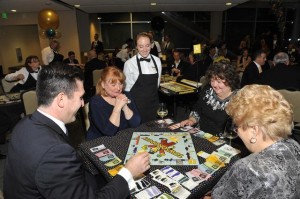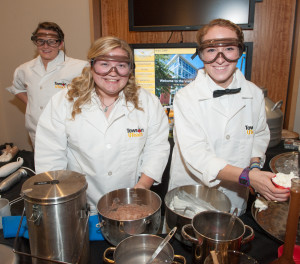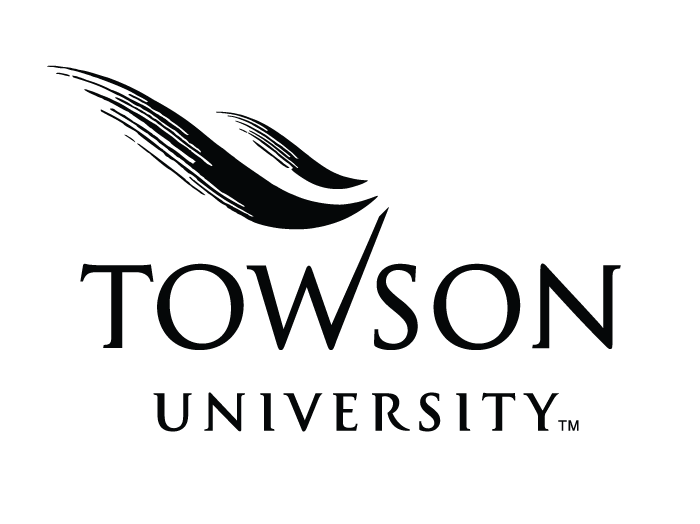A little glitz and a lot of play turned Saturday evening into a highly successful event benefiting the Towson UTeach program.
The fourth annual Towsonopoly tournament drew more than 200 people in support of the innovative STEM education method implemented by the university last year. Tables of four faced off against each other in two rounds of elimination games before the final round crowned the winner.
“I’m not kidding, I think it’s one of the five most fun nights of the year,” said Arsh Mirmiran, who has played at each event despite having no personal connection to the university.
An homage to Monopoly, the game is played on a specialized board bearing Doc in a tuxedo, monocle and top hat. The boxes usually named after Atlantic City streets are instead named for buildings and locations on campus. You may land on a parking fine or a lab fee and have to fork over play-cash to a dapper real-life banker wearing a red arm band and banker’s apron. Or you could find yourself on academic probation—Towsonopoly’s version of jail.
Saturday’s event featured bankers on Towson’s staff as well as students in the Towson UTeach program, like sophomore Trystan Denhard.
“[This event] means a lot, because we’re such a new program,” she said. “It’s great to have so many people have our backs when we’re just getting started.”
Towson UTeach is modeled after a program created at the University of Texas at Austin in 1997. Since then, about three dozen colleges and universities have adopted the system of training science, technology and math majors to teach their field subjects in high schools. It requires students to teach in real classrooms from the beginning of their freshman year—an element students say is critical to their success as educators.
“My wife happens to be an elementary school teacher,” said Mirmiran, “so the fact that it supports UTeach made it that much more exciting this year.”
In addition to the tournament, casino games like blackjack, craps and roulette (played with fake money), raffles, games of chance and a silent auction featuring items from spas, wineries, restaurants, professional athletes and artists kept attendees entertained and active in supporting the program.
It was a night mentor teacher Christine Roland truly enjoyed. “We usually don’t walk around in high heels,” she joked. “It’s just really nice to come together in this fun event that’s still about Towson UTeach and our students.”
Program co-director Linda Cooper says the funding raised by the event will support several elements of Towson UTeach, including stipends for mentor teachers with whom students work in off-campus classrooms, as well as salaries for master teachers here at Towson who provide constant one-on-one guidance to students enrolled in the program. It will also help with scholarships and externships to keep students immersed in teaching through the summer. But those activities just skim the surface of what Towson UTeach students are doing.
“On their own, they go down to Baltimore City and read to kindergarteners,” said Cooper. “The books they read they donate to the schools. Two of them go down every week to an organization that helps women who have been involved in sex trafficking, and our students tutor them in math so they can get their GEDs. They want to be out in the community, not just teaching in school, but education at-large.”
The UTeach program is a major commitment for the university, which must raise a multimillion-dollar endowment to maintain it. But it’s an effort President Maravene Loeschke believes in.
“UTeach is probably one of the most significant sources of pride that this university has ever had,” she told the Towsonopoly crowd. “It is going to take Towson to a totally different level of innovation in teacher preparation and leadership.”
As the clock ticked toward midnight and time ran out in the championship round, Robert Kimmons came up the winner, having bankrupted his three competitors. He won the night’s grand prize: 100,000 Marriott Rewards points donated by the Towson University Marriott and Conference Hotel. But if you ask Trystan Dehnard, the winners were in the classrooms, and the donors made all the difference.
“They’re changing math education more than they’ll ever know,” she said. “They are a huge part of changing education in the United States.”


